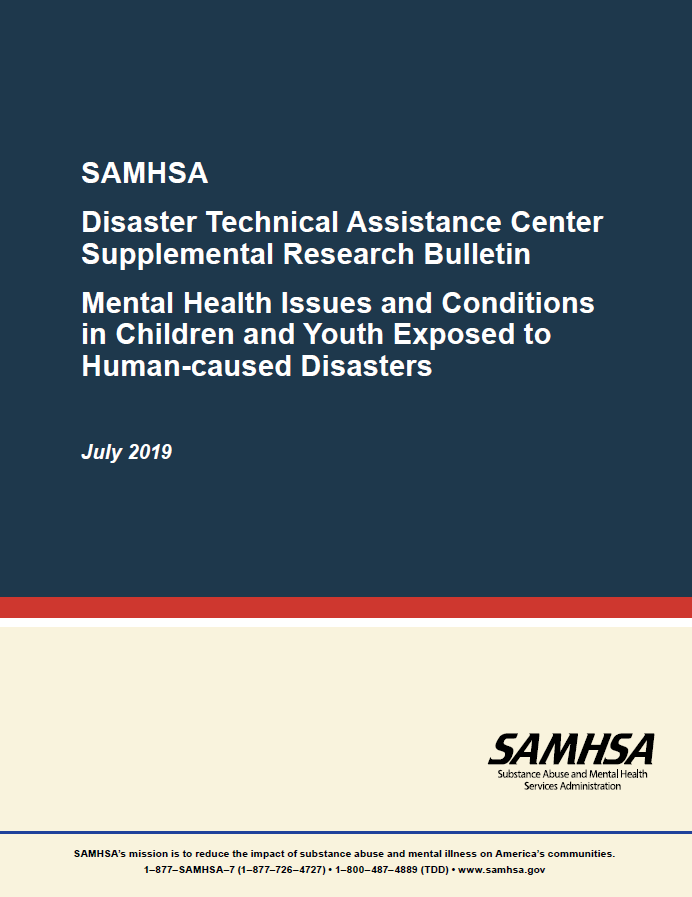Mental Health Issues and Conditions in Children and Youth Exposed to Human-caused Disasters
Source: SAMHSA https://www.samhsa.gov/sites/default/files/mental-health-substance-use-issues-exposed-youth.pdf

After exposure to oil spills, radiation disasters, incidents of mass violence, and terrorist attacks, children and youth may experience a variety of adverse mental health and substance use-related consequences. While symptoms of disorders decrease over time for most children and youth, for some, the effects will be more intense and will last longer, and may require therapeutic intervention.
This edition of the Supplemental Research Bulletin focuses on how human-caused disasters may affect children and youth. The issue also discusses risk and protective factors, as well as the possible effects of indirect disaster exposure. A sampling of approaches and interventions to support children in the aftermath of disasters is also included.
- ISSUP members can join Networks to comment – Sign in or become a member
Thank you for sharing the PDF file. For those wondering about the common mental health issues in children exposed to human-caused disasters and not wanting to spend a whole day reading the text file, here's the list:
Post-Traumatic Stress Disorder (PTSD): Children who experience or witness traumatic events, such as natural disasters, war, or violence, may develop PTSD. Symptoms of PTSD can include flashbacks, nightmares, avoidance of reminders of the trauma, and hyperarousal.
Anxiety: Children exposed to humanitarian crises may experience anxiety, including separation anxiety, panic attacks, and generalized anxiety.
Depression: Children may experience feelings of sadness, hopelessness, and loss of interest in activities they once enjoyed. Parents should use positive s words and/or encourage their children to improve revert their negative self-talk.
Behavioral problems: Children may exhibit behavioral problems, such as aggression, disobedience, and withdrawal.
Substance abuse: Children may turn to drugs or alcohol as a way of coping with the stress and trauma they have experienced.
Developmental delays: Children exposed to humanitarian crises may experience developmental delays, such as delays in language development, cognitive abilities, and social skills.
Maladaptive coping skills: Children may develop maladaptive coping skills, such as self-harm, substance abuse, and disordered eating, to cope with the trauma they have experienced.
Kind regards,
Dr. Danial Johanssen
Indirect exposure to disasters, Garten Of Banban 3 such as witnessing media coverage or hearing about the event from others, can also impact children and youth.